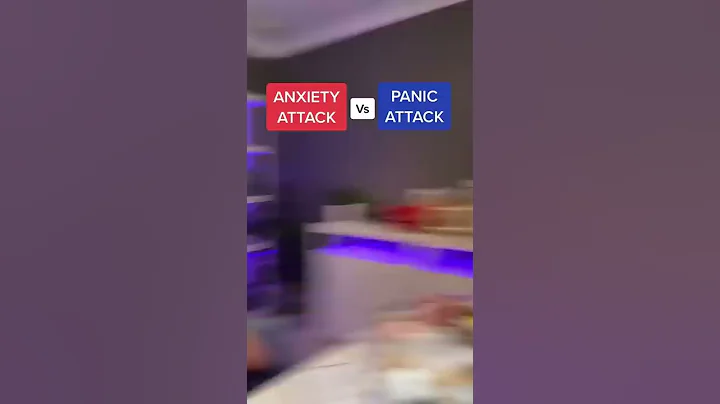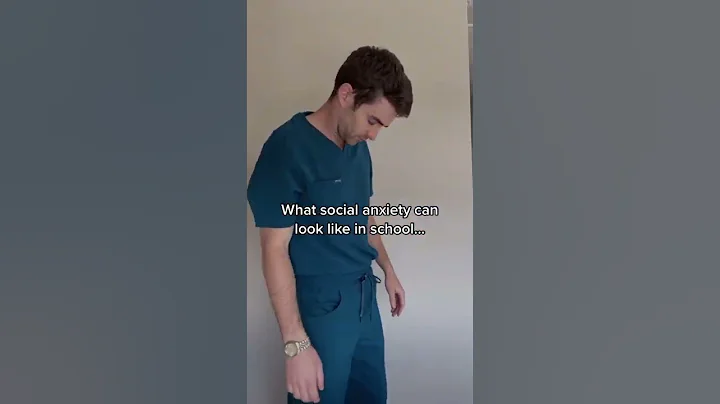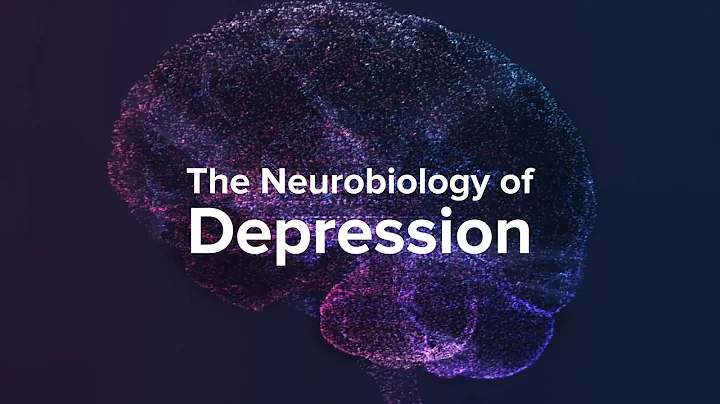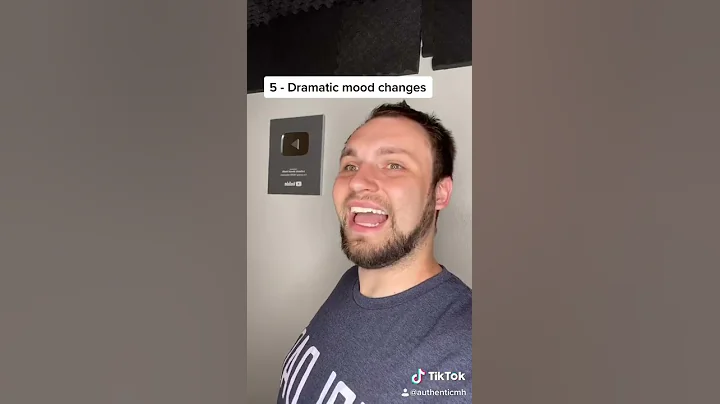
Hello, everyone.
This is Yi Nao Cloud Research Circle , I am Sister Miaojun ~
Today we are fortunate to have Aiwen , let him share with us an article published on the website Yale Medicine "Stress , Anxiety, or Depression? Treatment Starts With the Right Diagnosis (Stress, Anxiety, or Depression? Correct Diagnosis and Treatment)”.
Without further ado, let’s take a quick look at what the article says!
1
Introduction
Long before the coronavirus injected fear and doubt into daily life, Americans were already feeling uneasy. Their stress comes from various sources: rising medical costs, gender or racial discrimination, work...
Where long-term stress lies, anxiety is also indispensable. According to the National Institute of Mental Health, approximately 31% of Americans will experience an anxiety disorder at some point in their lives.

In addition, anxiety often goes hand in hand with depression.. According to the Anxiety and Depression Association of America, nearly half of people diagnosed with depression also have an anxiety disorder.
As if these statistics weren’t alarming enough, the global pandemic is upending daily life in so many ways, throwing millions of Americans out of work and raising many questions: When will we be able to live safely? Will children go back to school in September? Will I lose my job? Will I or someone I care about get sick?
"What I learned through these worries was that I had no control over what was going on around me," says Dr. Carolyn M. Mazur, a medical psychologist and director of women's health at Yale University .
Feelings of losing control can lead to stress, anxiety and even depression. recognizes the differences between them to ensure correct treatment.
2
What is stress
Stress is a physiological response to a certain situation.
When the brain receives a threat signal, neurotransmitters including dopamine and norepinephrine will activate a relatively primitive part of the brain - the amygdala , which allows the body to function during the evolution process. Be prepared when faced with a fight-or-flight response situation.
At the same time, the flood of chemicals also overwhelms the more rational, higher-order parts of the brain - the prefrontal cortex . This combination of neurons and hormones causes your adrenal glands to secrete adrenaline and cortisol. As your body prepares to react to a situation, your heart beats faster and your breathing becomes shallower. This makes it difficult to reflect with the calmer emotions, more careful logic, and impulse checks that the prefrontal cortex provides.

Millions of years ago, this complex program saved human lives. Today, when faced with the daily stressors of , it threatens our collective mental health.
Therefore, this becomes a uniquely modern problem.
"In contemporary society, individuals experience stress for long periods of time," Mazur said. "Stress no longer has its original biological function of alerting us. It accompanies us long-term or chronically and cannot be shaken off."
Long-term stress can cause There are many problems in the body, such as headache, constipation, diarrhea, chest pain, insomnia and teeth grinding. If left unchecked, stress can increase a person's risk for high blood pressure, heart disease, diabetes, and obesity.
Stress also plays a role in autoimmune diseases. Stress can also weaken the immune system, making people more susceptible to colds and other infections.
To this end, Mazur provides some suggestions that can be applied to daily life, which can help us block and reduce stress during and after the epidemic, as follows:
1. Exercise and a balanced diet. Add walking, running, biking, aerobics or yoga classes to your schedule, and try to incorporate more fruits, vegetables and whole grain foods into your daily diet. These changes can help you reduce stress and improve unhealthy symptoms. Feel.
2. Create a schedule. Research shows that a predictable schedule can prevent stress-induced out-of-control emotions. "The reality is becoming clear that this epidemic is unlikely to be resolved quickly," Mazur said. "We need to create personal plans or schedules that are beneficial and give us a sense of control."
3. Do it right for you Something of personal significance. One of the cores of adaptability is to pursue something in real life. Therefore, we should always remind ourselves what is important and keep working hard in that direction.
3
What is anxiety
Anxiety has the same physical and biological elements as stress. The difference between the two is that stress-related neurotransmitters and hormones continue to increase, and our minds get stuck in repetitive worry or panic-induced thought loops.
"Anxiety can be thought of as a normal response to stress and fear that people have due to the presence of unknown factors or perceived dangers," says Assistant Professor of Psychiatry at Yale University School of Medicine, Director of Connecticut's Latino Behavioral Health System, Psy.D. "However, when these feelings persist after the threat has passed and begin to interfere with daily functioning and relationships, it's time to take clinical note," says Michelle Arizanza-Silva. "

In addition, Silva also explained that anxiety can also be described as the feeling that a person's inner determination and strength are exceeded by external stressors.
Anxiety disorders can occur from a single cause or from a combination of factors. Triggers of anxiety may be obvious, such as losing a job or home, or they may be difficult to detect, such as a traumatic event in the past.
“Understanding the environment is key,” says Silva. “I try to conduct a thorough assessment of the patient’s current environment and situation to understand what they are feeling and experiencing in reality. For example, many of my clients are coping with poverty or Immigration-Related Stressors.”
Silva recommends some techniques to help relieve anxiety:
1. Engage in activities that require concentration. Repetitive anxious thoughts may be fixated on something that happened in the past, or worry about a semi-unknown future. "Anything that helps us stay in the present moment, like journaling, coloring, or practicing meditation, can help interrupt anxiety," says Silva.
2. Practice self-compassion. "We all experience anxiety to some degree - it's a very normal feeling," Silva said. She emphasizes accepting the discomfort you feel rather than judging yourself based on any experience you have.
3. Seek professional help. While there is still significant stigma when people seek mental health services, medical programs and specialists can help with a variety of treatments, including individual or group therapy and certain medications.
If anxiety is particularly severe or long-lasting, it may also be intertwined with depression. While the symptoms of depression may look different from person to person, they often share a common theme: an inability to enjoy life.
4
What is depression
Unlike stress and anxiety, the causes, symptoms, and mechanisms of depression are poorly understood. It is debilitating and can cause people to become disabled in all aspects of life, including work and relationships.
The World Health Organization ranks depression as the leading cause of disability worldwide. When depressed patients have suicidal thoughts or plans, it may be fatal.
"Nearly 50,000 people die by suicide in the United States each year, and the rate appears to be rising," says Gerald Sanacola, MD, a psychiatrist at Yale University and director of the Depression Research Program.
Physical symptoms of depression may include weight loss or gain, poor sleep, body aches, and slow speech or movement. Its psychiatric symptoms may include persistent sadness, despair, anxiety, and mental paralysis.

"If someone feels like a burden, they are less likely to engage with others and may end up withdrawing from social interactions," says Silva. "Depression can cause inward thinking and feelings of guilt, and it can impair a person's thinking, The ability to focus and form memories,” Dr. Katz said.
Over the past decade, researchers have shifted their view of depression from viewing it as a biochemical imbalance of neurotransmitters such as serotonin, dopamine and norepinephrine to viewing it in a broader way This disease, depression, may be caused by changes in electrical potential activity between neurons and nerve cells in the brain..
"We don't yet have an imaging study or a biomarker that can tell us whether someone has depression, what kind of depression they have, and why they have depression," said Dr. Katz. "So currently we diagnose through clinical assessment and the Common Symptoms Assessment questionnaire."
The inability to identify the underlying cause of depression means that treatments, while they may be effective for some people, rely on trial and error.
"Unfortunately, we don't have a cure for depression yet. Because we can't accurately predict which treatment will work better," Dr. Sanakola said, "We're getting closer, and we hope that some of the research being done now will Ten years will bring us closer, but we're not quite there yet."
Still, psychiatrists who prescribe medication (or provide therapy) and psychologists or therapists who practice different types of therapy can provide individuality to patients. specialized care, which may be effective for most people.
Silva says that for most people, professional help is an important or essential part of the road to recovery, so she suggests two other ways to temporarily relieve the disease:
1. Exercise. Many studies point out that regular exercise has a powerful positive effect on a person's mental health. "People with depression often ruminate; exercise can interrupt that in the short term," says Silva.
2. Connect with others. Although this advice may seem particularly difficult given the current quarantine policies, we can replace face-to-face communication by talking to family or friends.
5
5
Summary
Stress, anxiety and depression are common human experiences. If you are going through this dilemma, please know that you can get out of it through the support of friends and family or by seeking advice from a professional. You are not alone.
The main content of the article ends here. What good ways do you have to overcome anxiety and relieve stress? Come and share with us in the comment area~
References
Raven, Kathleen. “Stress, Anxiety, or Depression? Treatment Starts with the Right Diagnosis.” Yale Medicine, Yale Medicine, 21 May 2020,
https://www.yalemedicine.org/news/stress-anxiety-depression.
Author|Aiwen
Typesetting|Uka
proofreading|Sister Meow Jun Kunkun






















